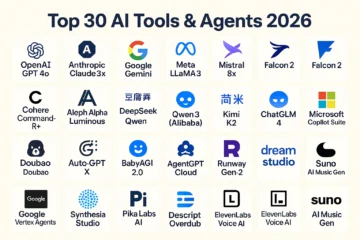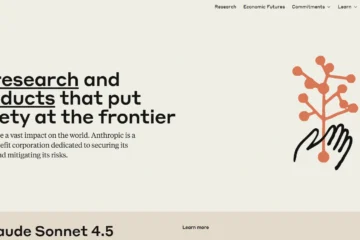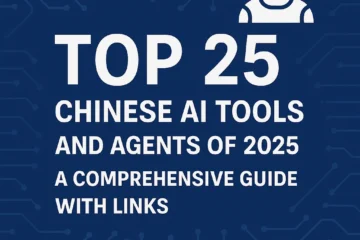
AI Chaos Unveiled: Why OpenAI, Google, and Microsoft Keep Shifting Strategies in 2025
AI Chaos Unveiled: Why OpenAI, Google, and Microsoft Keep Shifting Strategies in 2025
The Ever-Changing Landscape of Artificial Intelligence
In the fast-paced world of artificial intelligence (AI), innovation reigns supreme. As AI continues to evolve at an astonishing rate, industry giants like OpenAI, Google, and Microsoft find themselves in a relentless race to stay ahead. The rapid advancements in this field mean that strategies must constantly shift to keep up with new developments, making adaptability a critical factor for success. In 2025, these tech titans are not just competing with each other but also navigating a chaotic environment shaped by ethical dilemmas, intellectual property disputes, and emerging global competitors.
OpenAI’s Rollercoaster Ride: From o3 Mini to Ethical Controversies
At the close of 2024, OpenAI made headlines with its announcement of the o3 reasoning model, a leap forward in AI capabilities. True to their word, the o3 mini was released shortly after, available for free via the ChatGPT app and as an API for developers. This swift rollout showcased OpenAI’s commitment to pushing boundaries. However, the excitement was short-lived. In early 2025, Chinese firm DeepSeek unveiled its R1 model, which Microsoft’s security analysts revealed had been trained using OpenAI’s models. This sparked a firestorm of debate over intellectual property rights and the ethics of AI development, forcing OpenAI to reassess its approach amid growing scrutiny.
Despite these challenges, OpenAI remains focused on its ambitious Project Stargate, a plan to build the largest private computing infrastructure ever to support superintelligent AI. With $500 billion in funding from investors like SoftBank and Oracle, the stakes are higher than ever.
Microsoft’s Strategic Pivot: Leveraging Partnerships and Innovation
Microsoft, a key player in the AI arena and a major backer of OpenAI, responded to the DeepSeek controversy with a surprising move. In 2025, the company announced plans to integrate DeepSeek’s R1 model into its Copilot + PC ecosystem, starting with devices powered by Qualcomm Snapdragon X chips. This decision reflects Microsoft’s strategy to stay at the cutting edge by incorporating third-party innovations, even as it reduces its reliance on OpenAI. Additionally, Microsoft is enhancing its Copilot experience by integrating OpenAI’s o1 reasoning model under its “Think Deeper” initiative, aiming to deliver more nuanced and insightful responses to users.
Reports from Reuters in March 2025 indicate that Microsoft is also developing its own AI reasoning models, codenamed MAI, to compete directly with OpenAI. This dual approach—partnering with external innovators while building in-house solutions—highlights Microsoft’s determination to maintain its leadership in the AI race.
Google’s Bold Investment: A $75 Billion Push into AI
Google, under its parent company Alphabet Inc., is not sitting idly by. In 2025, Alphabet committed a staggering $75 billion to AI development, signaling its intent to dominate the digital landscape. This massive investment comes as Google rolls out updates to its Gemini family of large language models (LLMs), including the affordable Flash-Lite, designed to counter rising costs and competition from Chinese firms like DeepSeek. By offering cost-effective AI solutions, Google aims to make its technology accessible to businesses of all sizes, challenging rivals to rethink their pricing strategies.
Google’s focus on affordability and scalability positions it as a formidable contender, especially as it seeks to regain ground lost to OpenAI’s ChatGPT success. The company’s Gemini 1.5 Flash and Pro models, launched in early 2025, further demonstrate its commitment to innovation.
The Broader Implications: Ethics, Competition, and the Future of AI
The ongoing upheaval in AI development underscores the unpredictable nature of this field. The DeepSeek incident has not only raised ethical questions but also intensified competition, pushing companies to innovate rapidly while addressing legal and societal concerns. As OpenAI, Microsoft, and Google evolve, they must balance their pursuit of groundbreaking technology with the need for responsible practices. The interplay between these tech giants in 2025 will play a pivotal role in shaping AI’s future, influencing everything from workforce automation to global problem-solving.
For smaller players and consumers, these shifts bring both opportunities and challenges. Affordable AI solutions from Google and others could democratize access, while ethical lapses could erode trust in the technology. Staying informed about these changes is crucial as AI continues to transform our world.








